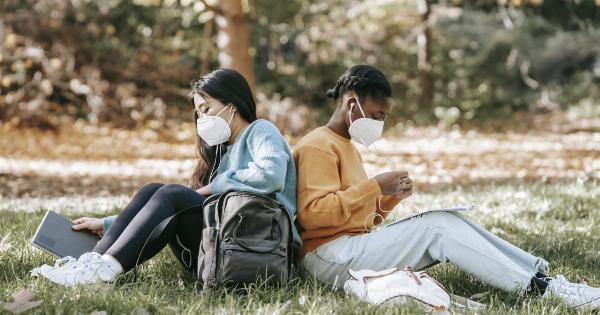As the summer season approaches, it’s time to enjoy the warm weather, outdoor activities, and time spent with family and friends.
However, summer is not only a season of fun and relaxation but also a season when sore throats can strike unexpectedly.
What Causes a Sore Throat in the Summer?
There are several reasons why you might experience a sore throat during the summer months. One common cause is the air conditioning in your home, office, or car. Cold air conditioning can dry out the air, leading to throat irritation and dryness.
Another factor that contributes to summer sore throats is the change in temperature. When you transition from the scorching outdoor heat to the cool indoor environment, your body might struggle to adjust, which can result in throat discomfort.
In addition, allergens like pollen and mold are more prevalent during the summer. If you have allergies, exposure to these allergens can cause postnasal drip and throat irritation, leading to a sore throat.
Preventing Summer Sore Throats
To enjoy a sore throat-free summer, here are some preventive measures you can take:.
Stay Hydrated
Drinking an adequate amount of water throughout the day is essential, especially during hot summer months. Hydration helps keep your throat moist and prevents dryness that can lead to a sore throat.
Avoid Cold Air
While air conditioning provides relief from the summer heat, it can also dry out the air and irritate your throat. To prevent this, try using a humidifier or keeping a bowl of water in the room to add moisture back into the air.
Maintain Good Hygiene
Summer means vacations and travels, so it’s important to practice good hygiene to prevent the spread of germs.
Wash your hands regularly, especially before eating or touching your face, to minimize the risk of infections that can cause a sore throat.
Manage Allergies
If you know you have summer allergies, take steps to manage them effectively.
Keep windows closed to avoid allergen exposure, use air purifiers, and consider over-the-counter antihistamines to alleviate allergy symptoms and reduce the risk of developing a sore throat.
Avoid Irritating Substances
Summer parties often involve indulging in alcoholic beverages, smoking, or exposure to irritants like chlorine in swimming pools. These substances can irritate your throat and make it more susceptible to infections.
Limit your exposure to such irritants to prevent sore throats.
Practice Sun Protection
While it may not seem directly related, sunburns can also contribute to sore throats. Sunburned skin can lead to dehydration, which in turn affects your throat.
So, don’t forget to apply sunscreen, wear protective clothing, and stay in the shade when the sun is at its peak to avoid throat discomfort caused by sunburn.
When to Seek Medical Help
In most cases, a summer sore throat will resolve on its own within a few days. However, there are instances where medical attention may be necessary. Consult a healthcare professional if:.
- Your sore throat persists for more than a week
- You develop a high fever
- You have difficulty breathing or swallowing
- Your sore throat is accompanied by a rash or joint pain
- You experience frequent recurring sore throats
Remember, prevention is always better than cure. By taking simple and effective precautions, you can significantly reduce the risk of developing a sore throat and enjoy a healthy and pleasant summer season.





























